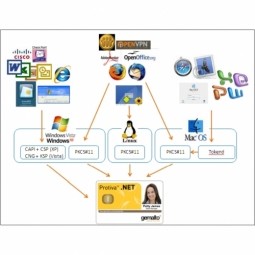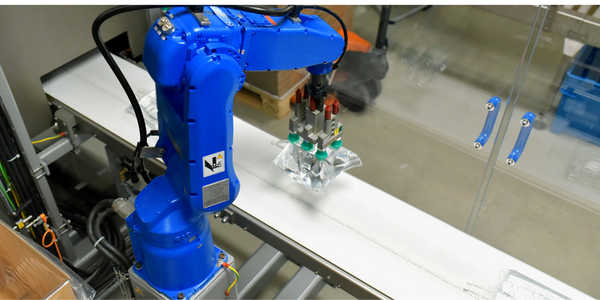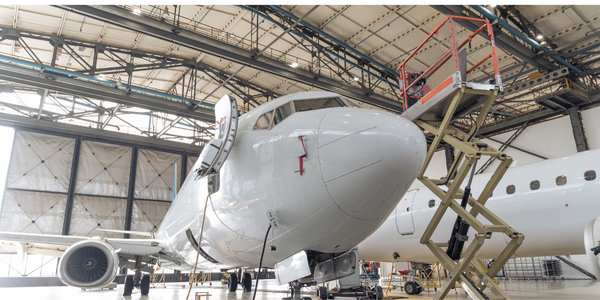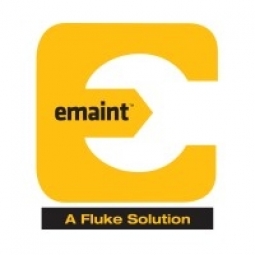技术
- 功能应用 - 计算机化维护管理系统 (CMMS)
- 功能应用 - 库存管理系统
适用行业
- 生命科学
适用功能
- 维护
- 采购
用例
- 服务备件管理
- 时间敏感网络
服务
- 系统集成
关于客户
Cerapedics 是一家全球性骨科生物制剂公司,正在利用其骨移植技术彻底改变骨修复。该公司的产品每年用于全球超过 400 万例骨科、创伤、脊柱和介入手术。该公司在管理超过 750 个备件的库存方面面临着挑战,这既费时又费力。 Cerapedics 的维护经理 John Espinosa 认识到对更高效系统的需求,并与 eMaint 合作实施其行业领先的 CMMS 软件。
挑战
Cerapedics 是一家全球骨移植技术公司,在管理超过 750 个备件的库存方面面临着重大挑战。该公司需要一个能够实现高效、战略性备件管理的系统。现有系统既耗时又费力,工人们花费宝贵的时间在库存中查找适合正确设备的正确零件。该公司认识到零件标签、位置跟踪和库房中央组织系统的需求。我们面临的挑战是开发一种系统,该系统不仅可以简化流程,还可以确保在紧急维护期间可以随时获取关键备件。
解决方案
Cerapedics 的维护经理 John Espinosa 与 eMaint 合作实施了他们业界领先的计算机化维护管理系统 (CMMS) 软件。 eMaint CMMS 允许组织和跟踪 Cerapedics 的备件,建立简化和标准化的系统,节省团队的时间和劳动力。该系统使在维护危机期间查找关键备件成为搜索 eMaint 备件数据库的简单过程。该解决方案还与 Cerapedics 的采购系统集成,可以轻松创建采购订单和履行发票。 eMaint 零件重新订购列表提供了对库存不足的零件的可见性,从而实现了库存的主动管理。
运营影响
数量效益

Case Study missing?
Start adding your own!
Register with your work email and create a new case study profile for your business.
相关案例.

Case Study
Corporate Identity Solution Adds Convenience to Beckman Coulter
Beckman Coulter wanted to implement a single factor solution for physical and remote logical access to corporate network. Bechman Coulter's users were carrying smart card badges for doors, but also needed a one-time password token to access to our corporate network when they were not in the office. They wanted to simplify the process.

Case Study
Embracing Business Success in Real Time
· Increase control over growing Big Data to improve business decisions · Manage data for 28,000 biotechnology stockkeeping units in the fields of microbiology, molecular biology, animal cell cultures, plant tissue cultures, and lab ware for laboratory chemicals · Accelerate report generation and analysis with real-time data

Case Study
Flow Robotics: Scaling Up Production and Accelerating Product Development with IoT
Flow Robotics, a Danish manufacturer, developed flowbot™ ONE pipetting robots to alleviate the strain on bioanalysts in life-science laboratories and hospitals across Europe. These robots were designed to automate part of the testing process, speeding up the time it takes to produce results and reducing pressure on staff. However, the company faced challenges in scaling up production and accelerating product development. High workloads and physically challenging conditions have long been an issue for laboratory professionals. Flow Robotics estimates that around half of medical lab technicians carry out the same arm movements for at least a quarter of their working day. The American Society for Clinical Pathology reported that 85% of laboratory professionals feel burnt out; 36% struggle with inadequate staffing; and 32% face a heavy workload and pressure to complete all testing on time.

Case Study
Revolutionizing Aerospace Industry with 3D Printing: A 63% Lighter Titanium Part
GE Aviation, a renowned name in the aerospace industry, recognized the potential of 3D printing technology in transforming the sector. The primary challenge was to reduce the weight of the aerospace parts, which would directly impact the fuel costs. A lighter airplane would mean lower fuel consumption, leading to cost savings and a smaller carbon footprint. However, achieving this weight reduction without compromising the strength and functionality of the parts was a significant challenge. Traditional manufacturing methods were not able to provide the desired weight reduction while maintaining the required stiffness and strength of the parts. The challenge was to find a solution that could create strong, light, and functional aerospace parts.
Case Study
Material Intelligence at Ethicon: Sustaining Medical Device Manufacturability and Improving Patient Care
Ethicon, a world-class medical devices company, faced several challenges in its operations. The rapid selection of manufacturing materials compliant in global markets was critical to assure patients, practitioners, and purchasing organizations of the biocompatibility of their medical devices. Ensuring supply chain continuity and minimizing risks of obsolescence for medical devices due to regulatory changes were also crucial in meeting Ethicon’s ongoing commitment to maintaining patient care. Furthermore, the engineers at Ethicon were developing the next generation of medical devices and needed to access historical material data to accelerate new product development. The process of centralizing and digitalizing its materials information was a significant challenge that Ethicon needed to overcome.
Case Study
IWT's Transformation: Customizing with Efficiency in IoT
IWT, a company specializing in the design, manufacture, and installation of washing systems for the life sciences and pharmaceutical industries, faced a significant challenge in managing its wide product portfolio. The company manufactures 45 different models, 60% of which are customized to some degree. This high level of customization, combined with limited production quantities, necessitated a controlled process for managing the release of engineering changes. The goal was to achieve efficiency, reduce process time, and better coordinate production throughout the organization. The need for strict compliance in heavily regulated industries further complicated the situation. IWT's existing PLM journey with Dassault Systèmes’ SOLIDWORKS for 3D CAD and Enovia for managing CAD data and Bills of Materials (BOMs) was proving inadequate. The system had limited part classification, no workflow, and no tool to ensure data consistency. The management of non-CAD documents was also a challenge, with information often difficult to find and access.



